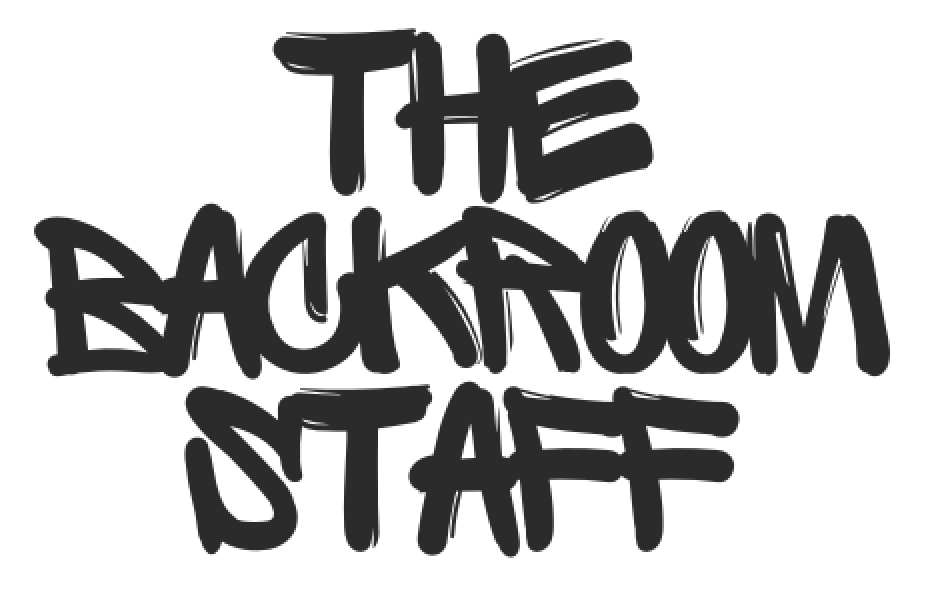Football, like all industries, needs innovators. In coaching, there is a new group of coaches around the world changing how football is taught - and ultimately, played. FC London head coach and head of methodology, Yiannis Tsala, is one of these young, innovative coaches blending human physiology, society and culture with football.
However, it was one of Yiannis’ other accomplishments that initially put him on my radar. This season, Yiannis’ FC London side became the first team ever (!) to win promotion at the semi-professional or professional level in Canada or the US.
In a time where neither Canada, the US or Mexico have promotion and relegation at the professional level, FC London’s historic achievement is a truly hopeful sign for football in North America. Leagues like MLS and the CPL employ an incredibly vast set of exclusionary rules affecting players, coaches, fans and clubs alike. Creating an open ecosystem with proper incentives and rewards for good work is one of the most impactful ways to develop great players, coaches and clubs.
The reigning League1 Ontario Coach of the Year, Yiannis is a wealth of information and his passion and dedication for player development and improving as a coach is infectious. In this interview, he shares his experiences as a coach in Canada, his coaching philosophy and thoughts on the future of football.
The interview has been condensed and lightly edited for grammar and clarity.
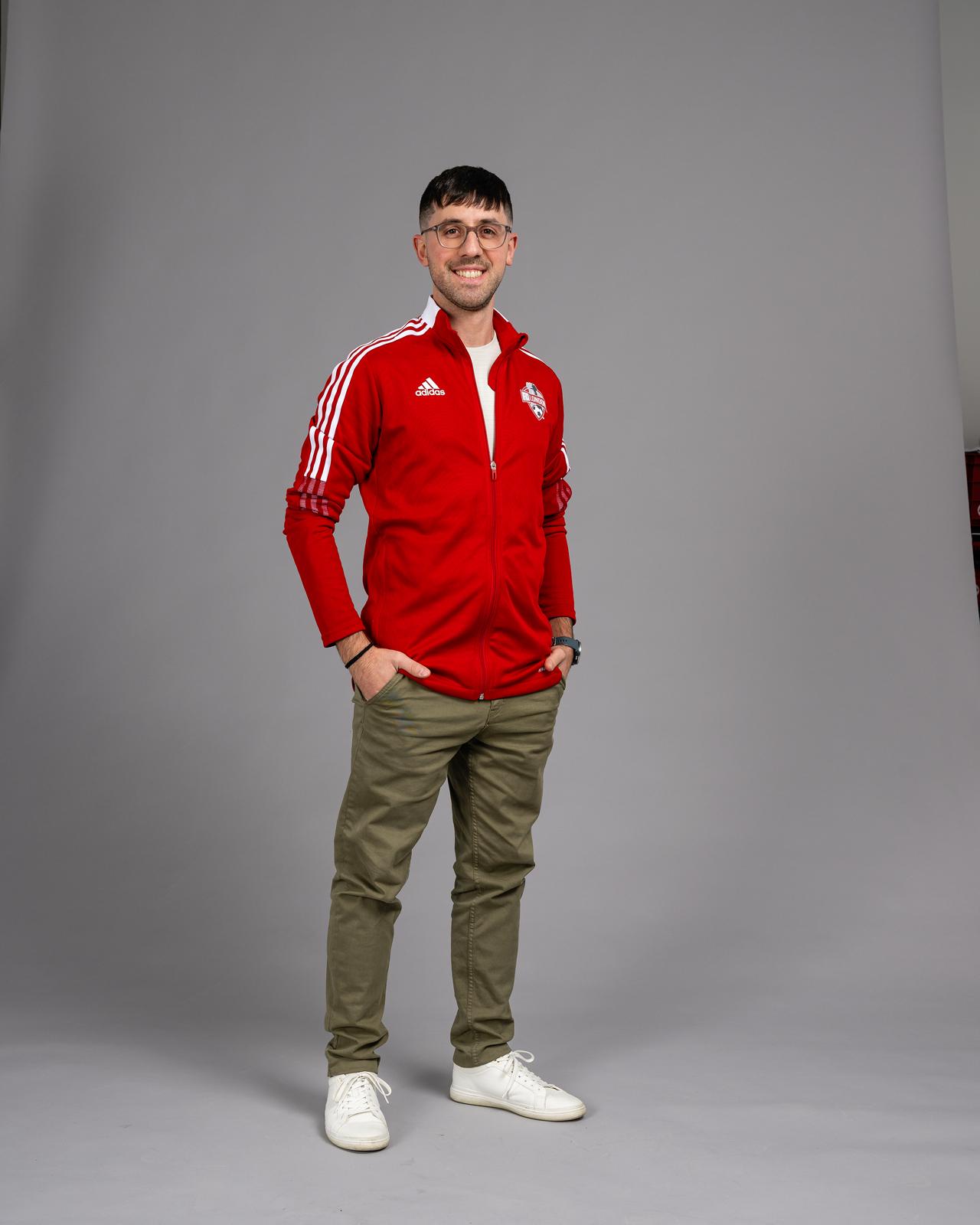
[ Background ]
Soccer was always around my family growing up. My two older brothers played, they were my idols. We’d play 1v1v1 in the backyard, which often became 2v1 against me - so I had to learn from a young age to protect the ball!
While I was at the University of Winnipeg, I was very fortunate to start coaching inner-city soccer. At first, I had no idea what I was doing. I just showed up with a bag of balls and waited for the kids to show up. At first, we just played but slowly, I realized I needed to have a bit of structure in what I was doing. I started trying all kinds of drills and games.
There, I caught the attention of a coach named Fabio Capone, who brought me into one of the local clubs. I spent 4 years there working my way up from the U6’s to U17’s and the provincial teams. In those 4 years, I spent a lot of time experimenting and learning the craft - I was on the pitch for 3, 4 hours a day.
Next, I moved to Saskatchewan and took a role as Director of one of Canada’s Regional Excel centers - one of 7 in Canada that house our youth national team players. It was a huge privilege and I spent 4 years there as well before moving to the CPL (Canadian Premier League) where I spent two years with Cavalry FC.
[ Professional football with Cavalry FC ]
That was an interesting time. I met the head coach on the A license course. He was a curious guy and liked some of the questions I was asking and how I was on the course. We started talking and he created a cool opportunity for us, for which I’ll always be grateful.
Initially, I started as an analyst but my role evolved week by week until I was helping run sessions, working on the methodology and frameworks behind the scenes at the club. I also started to do a lot of one-on-one work and working with small units.
During matches, I’d sit up in a tower at the very top of the stadium - you’d never see me on television! About 10 minutes before halftime, I’d sprint down to the changing room, plug in my laptop and get a few clips ready to show the staff and the team. I’d explain to the other coaches what I’d seen from above and propose game solutions. Sometimes the gaffer would ask me to deliver this to the players during the halftime team talk which was a really cool experience.
[ Do you think head coaches should spend more time in the stands (to get a better picture of what’s happening on the pitch)? ]
I know that there were some coaches that used to do it back in the day in the Premier League, guys like Sam Allardyce would be up top to start, and then he would come down. In rugby, the coaches stay up top and take a bird’s eye view.
But nowadays there's a lot of technology that means you can get the same benefits from the bench. It all depends on how coordinated your staff is and how clear your processes are. In a good process, the head coach can be on the touchline and get all the information from a better angle.
[ FC London and a Historic Success ]
After a couple of years at Cavalry FC, I was itching to be back on the field, running the day to day training sessions and the team meetings as a head coach. I found an opportunity as head coach of the semi-pro team at FC London that plays in League1 Ontario.
At FC London, we work all the way from U5’s to our semi-pro team. We have a full pathway - right from the first day they put on our kit to the first team, we have various objectives for each age cohort. With the changing demands of the game, we need to ensure players are becoming more adaptive than ever at the individual and team level. The future game will see teams with variable team intentions and this is important for coaches at the youth level now to be aware of. So we work also on individual reference coaching within the club and sessions that move and change fast!
I’ve spent the last 3 and a bit years here at FC London. It’s a really exciting time for the club. League1 Ontario is the only league that has promotion & relegation in Canada or the USA at the semi-pro / professional level. When I took over the first team two years ago, the team was dead last. It wasn't easy, we won 1 of our first 10 matches. However we were growing, this is natural as we had to turn around many things not only the on-field performance but also our cultural and mental frameworks. Simple things like how we greeted each other each day, the attitudes in training, pre-meetings, the culture around our playing ideas, and using data to help objectify the process. Slowly things started to turn, and the tipping point came, we became a very adaptive and stable side, teams couldn’t prepare for us as we layered various team intentions into our style of play.
We’re the first team ever in Canada or the USA to be promoted! Which is a really special milestone and one we won’t realize how important it was until a few years down the road. We made history and it's an experience I wish many more Canadian and American coaches get to have one day. It truly forces you to be at your best every single day. We had to go to our affiliate club Toronto F.C. and play them, we trained on ½ of a pitch, they trained in a $20 million facility. It’s not enough to show up and hope, you have to prepare really well on the field and in your match plans and individual meetings. That 1-0 win away was the highlight of the season, no one had gone there and won and we were the first (and only) to do it. That was cool for us and for our academy players back home to see our first team making new memories.
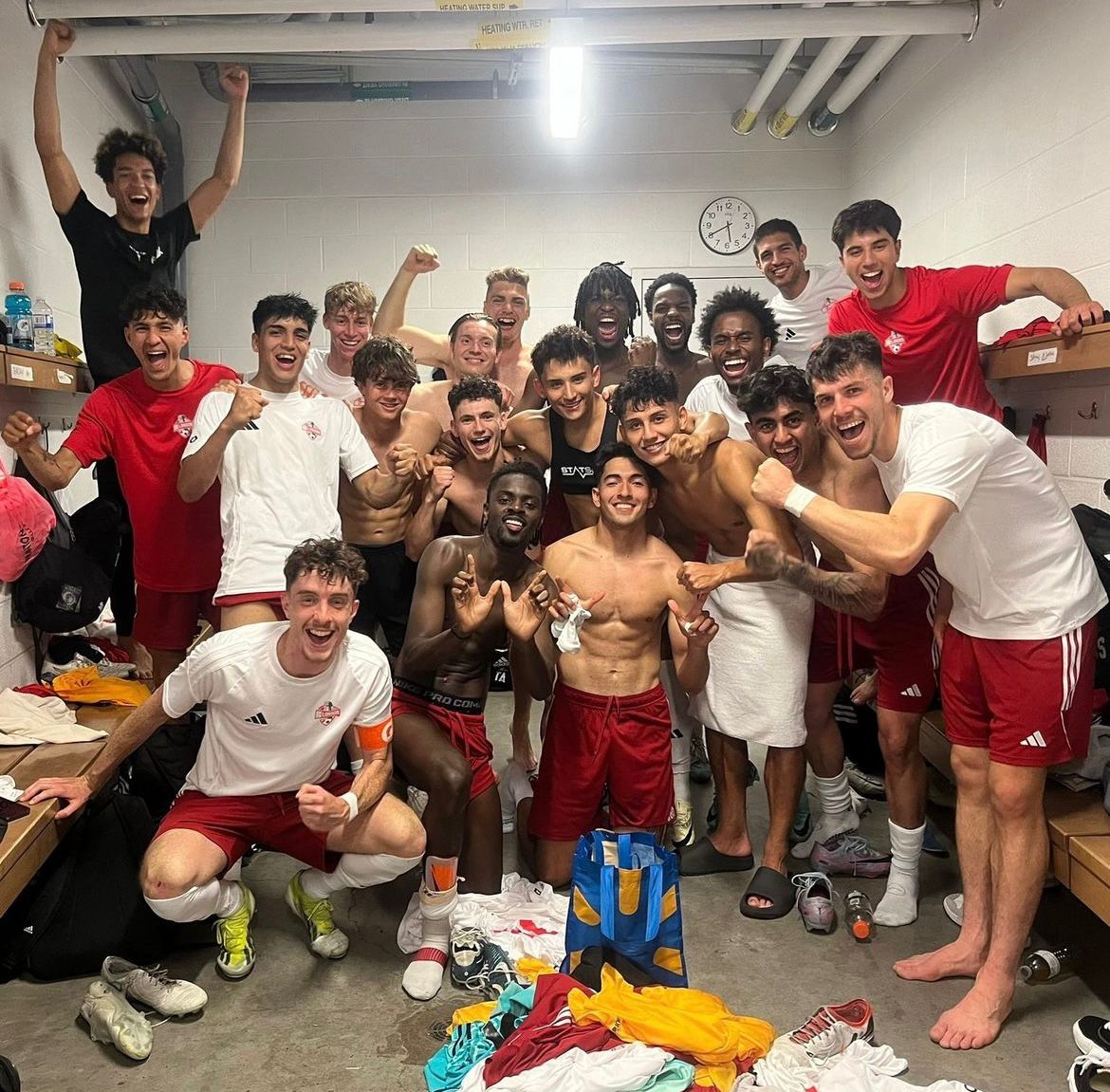
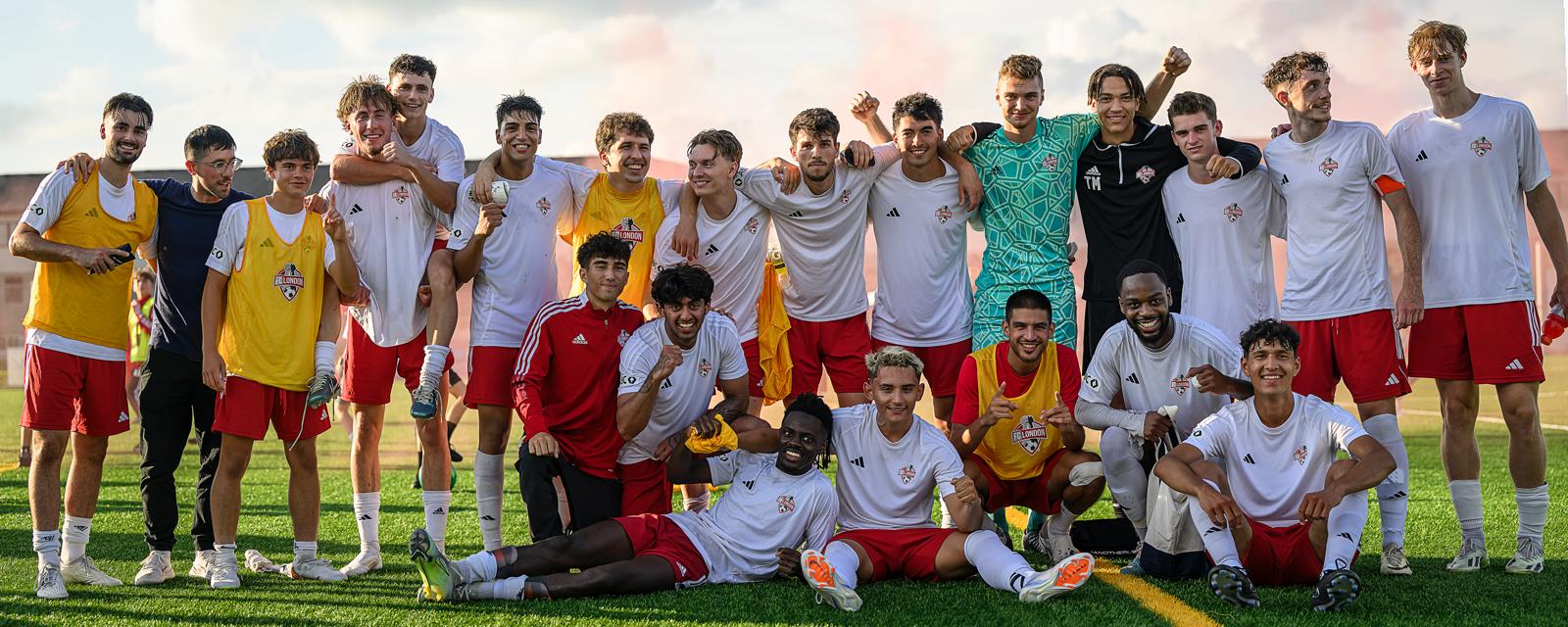
[ How did you get into individual coaching? ]
Ever since I started coaching, I realized everything is about individuals, mainly small relationships working towards a team objective. Coaching is all about individual development within team concepts. Many youth coaches get this wrong. Identifying a player’s profile and strengths and incorporating them into the team’s ideas has always been a core part of how I work. What spaces do they enjoy playing from, what are their x-factor qualities, what do they do naturally, and what aspects, if added, can amplify their game? These are questions we must always be asking ourselves about the players. You need to know each player on a really deep level, this means analyzing 10+ matches to truly know their behavior and where the gaps in their intentions are.
In Calgary, I realized that professional players actually aren’t getting the individual attention they need. It’s simply a question of capacity and time. At youth level, coaches are working with players one on one through the whole season (and even this is a tall task) but at the pro level, when everything is solely focused on the next match, some of that can get lost. It’s an area that top sides are realizing and investing more into.
Who’s making the time to do that in professional environments - to sit with these guys and make sure every player is developing? Most times, it’s not the head coach or the assistant. At Cavalry, I was delivering a lot of meetings and I could see that a lot of the players were getting very curious with the way we were speaking with them and sharing information. They started asking more questions. They were hungry for more.
I started running small group meetings and one on one sessions with our club and more and more players just started showing up to them! These were essentially voluntary sessions but there was a huge thirst for knowledge and individual development even - or especially - at the pro level. I realized more and more that there was a huge opportunity to put more focus on this area of coaching. I’ve combined many skill sets in this area to separate myself as a specialist in this domain. Learning how to be a better active listener, employing the use of emulation and vicarious learning, researching how to develop situation-action patterns, becoming a curiosity catalyst and mastering the art of questioning through references. All of this is on top of building a database of over 5000 clips to reference back to. These are the skills of the future.
"professional players actually aren’t getting the individual attention they need."
[ What sort of things are the focus of these individual sessions? ]
The first question I ask myself is, ‘what are we developing?’ Not many people can answer that question. To develop football ability we must first understand what a football interaction is and what are the phases of the decision making process.
There are 4 phases to a football interaction:
1. Communicating phase
A two-way exchange of information. The key is 'invitations for action' like eye contact, cue recognition, and understanding the information that your eyes are taking in.
2. Individual intention
i.e. deciding what to do based on the information you've received in the communication phase. For example, deciding to progress the ball to a teammate making a run.
3. Game insight
Selecting how to do it. This is all about the positioning, moment, direction and speed of your interaction. This is where you can really win the margins in individual development and what top managers have always focused on.
4. Executing Decision
Only after going through these steps can you then execute your decision - the part that people see (they can't know for sure the intention, for example).
It’s really important to understand that there are 4 phases there, and those 4 phases happen subconsciously within milliseconds - the player doesn’t have to think ‘oh, I will communicate now’!
For individual development, this means you need to sit down with the player and talk to them. You need to reference their actions and put questions into their brain that anchor them back to that moment and help them understand how they can improve across those 4 phases.
This is the methodological framework for how you improve football interactions with purpose. And again, if you don't have this framework, probably all you see is a player kicking the ball and incorrectly diagnosing the error. 99% of coaches will say the players’ mistakes are a result of technique without considering a potential misalignment somewhere else in the process.
[ Individual coaches are already pretty common in many other sports, do you think this type of coaching will become more common in soccer? ]
I think it is already happening at the top level - with the people who are really pushing the margins. And I think we'll see more and more of it.
I think football reflects society in many ways, too. The individualistic nature all around us - players need and want that more than ever, and we need to service them in that way. That being said, we operate in a team game. We're working with the 4 phases of a football interaction, but above that, there are team intentions. Coaches need to understand how to design training sessions that blend clear team intentions with individual autonomy and creativity. Varying problems in training is a key way to provoke this.
I really believe the future of football coaching will go more and more into individual development within the team concepts. But not in the way most people think. Looking ahead, I envision a game that becomes increasingly dynamic, where the rigid structures of traditional football give way to a focus on individual player qualities and the creation of unique team synergies. This shift allows for greater freedom on the pitch, enabling players to express their natural talents and characteristics fully, rather than conforming to predefined roles or tactics.
The purpose of this evolution is profound. Many in the coaching fraternity might question the relevance of their role under this new paradigm: "If I'm no longer dictating movements, plays, or even positions, what's left for me to do as a coach?" This perspective, however, misses the broader picture. The role of the coach isn't diminished but rather transformed. Instead of being a mere tactician, the coach becomes a facilitator of player expression and development, encouraging creativity and adaptability. It also has implications for training. No more rigid possession games but instead, fluid games with training themes that vary based on objectives. Training should prioritize individual development, enhance synergies, and reinforce our principles.
This approach transcends traditional coaching by shifting from a control-centric to a player-centric model. It's not about the coach's control or ego but about fostering an environment where players can thrive and contribute in the most natural and effective ways. This method not only enhances team performance but also respects and develops each player's unique abilities, leading to a more personalized and efficient form of football.
In essence, this evolution elevates coaching from dictating play to empowering players, marking a significant advancement in how we understand and implement coaching in football.
"Football reflects society in many ways ... players need and want [individual coaching] more than ever."
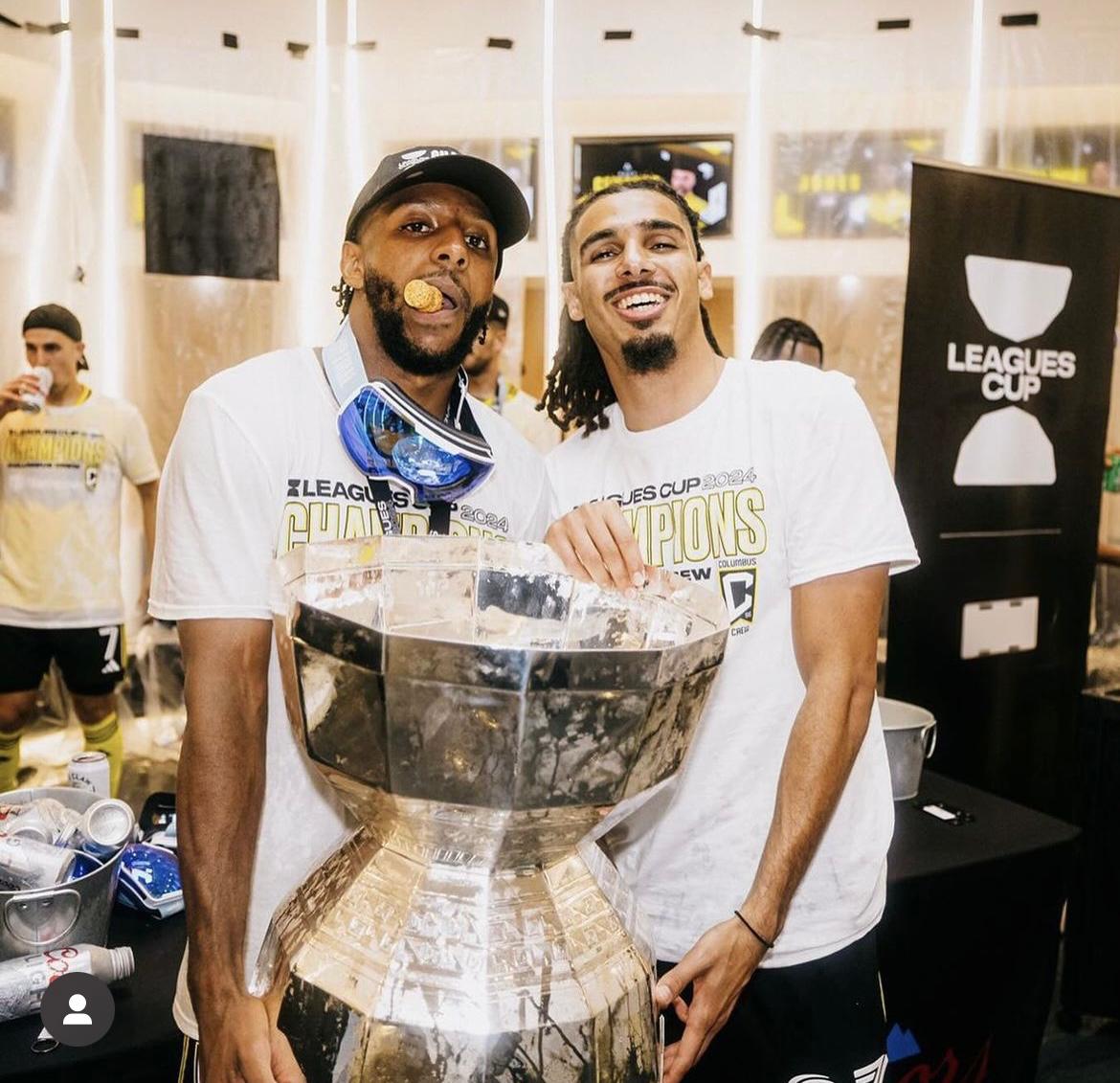
[ Do you spend time learning neuroscience/psychology/biology to help you understand this from a more scientific perspective? ]
Yeah, these frameworks are all based on and built upon research and academic theory - from ecological systems thinking to differential learning. You can learn concepts from anywhere that can be useful across many fields. Then you get personal ‘ah-ha’ moments. Whenever I read research papers (and by no means am I an academic) I get ideas, I can't explain it, but my brain starts to think about the next session, the last game I watched or an interaction I had earlier in the day. I think it’s my insatiable curiosity.
People don’t make decisions in isolation, making players more aware of a situation or action and their attention and intention at the time becomes very important for development. It’s not about being directive or explicit - i.e. ‘you must look to pass in this direction’ but about understanding your environment to make the best decision. I am not just a game insight coach who uses video, my entire tapestry is built upon mastering session design - how to layer implicit learning into a training activity. This means building aspects into training that speak to the player so you don't have to. Think about mini goals for example, how and where they are placed has a massive impact on behaviors.
It’s not just about team intentions either, but questions like, ‘what does 2 left-footed players on the right side of the pitch afford a team? What possibilities for actions can emerge from this?’ In the future, we're going to see more and more of these synergistic factors emerging in football.
[ You share some of your work online, what are some of the best reasons for coaches like you to share their ideas? ]
A lot of stuff I’m seeing right now is coaches sharing what to do (or what not to do depending on how you view it) but very few people are sharing how to do it. Of course, you can’t just copy paste someone else’s work and always apply it in your environment, you need to understand the principles and then it’s up to you to take that subjectively and apply it to your context. That’s one of the main reasons I’m sharing.
The other big reason, I’m generally curious about who's out there and who’s thinking differently. It can be really difficult though. But I keep sharing because you never know and I often get messages from coaches who are just starting out. I'll always reply because I know how hard it is to get access to information or people who have information - especially as a coach starting out in Canada.
"I know how hard it is to get access to information or people who have information - especially as a coach starting out in Canada"
[ How have your thoughts about player development and coaching changed since you started coaching? ]
When I started, everything was about technique. I was obsessed with it, all my session activities were based on technique, I’d drill it for hours and hours.
Then I realized technique is the execution of a decision and got interested in decision making and started to make all my sessions about decisions and enabling players to make better decisions.
Eventually, you realize decision making is part of a tactical element - how players make decisions together to solve football problems - but this is part of a strategic component that incorporates tactics, group decisions and individual decisions. But even this is only part of the full picture - there’s a whole other side of the game that includes variance and topics like opposition analysis. And each of these have unique processes and methods as well!
When it comes to youth football, I focus more on executing decisions and game insight aspects in training, with older players it's more about team intentions and individual intentions. It’s not some rigid menu, but more of a spectrum and expert coaches understand this.
What I’m saying is my field of vision, my scope of development is widening more and more (and realizing how little I knew then!). Also, I’m thinking a lot about where football at the top level is going next - what’s the next frontier? Every (top) team has tactics, strategies and methodology so what is really happening next? These are the questions I’m asking myself. I believe technology blended with more intentional practices in visualization will become more and more prominent as well.
[ How important is it for coaches to have different experiences? (e.g. across different age groups, genders, roles) ]
I think it’s invaluable to become a bit of a generalist in this way. Keep your specialty in leadership and coaching, but to become a generalist across a whole range of different skill sets was invaluable for me. I'm a big believer that if you can work with a 5 or 6 year old and impact their development and make sure they're having a joyful experience, you can do it with professionals - working with older players should be easier.
Whether you're an analyst, a director, an academy coach, etc stack those skill sets. This also helps you build empathy for the people you're working with - it’s going to be easier to be a ‘team player’ if you can understand a bit better the challenges that a person is going through (in their role). These experiences have helped me tremendously as a leader.
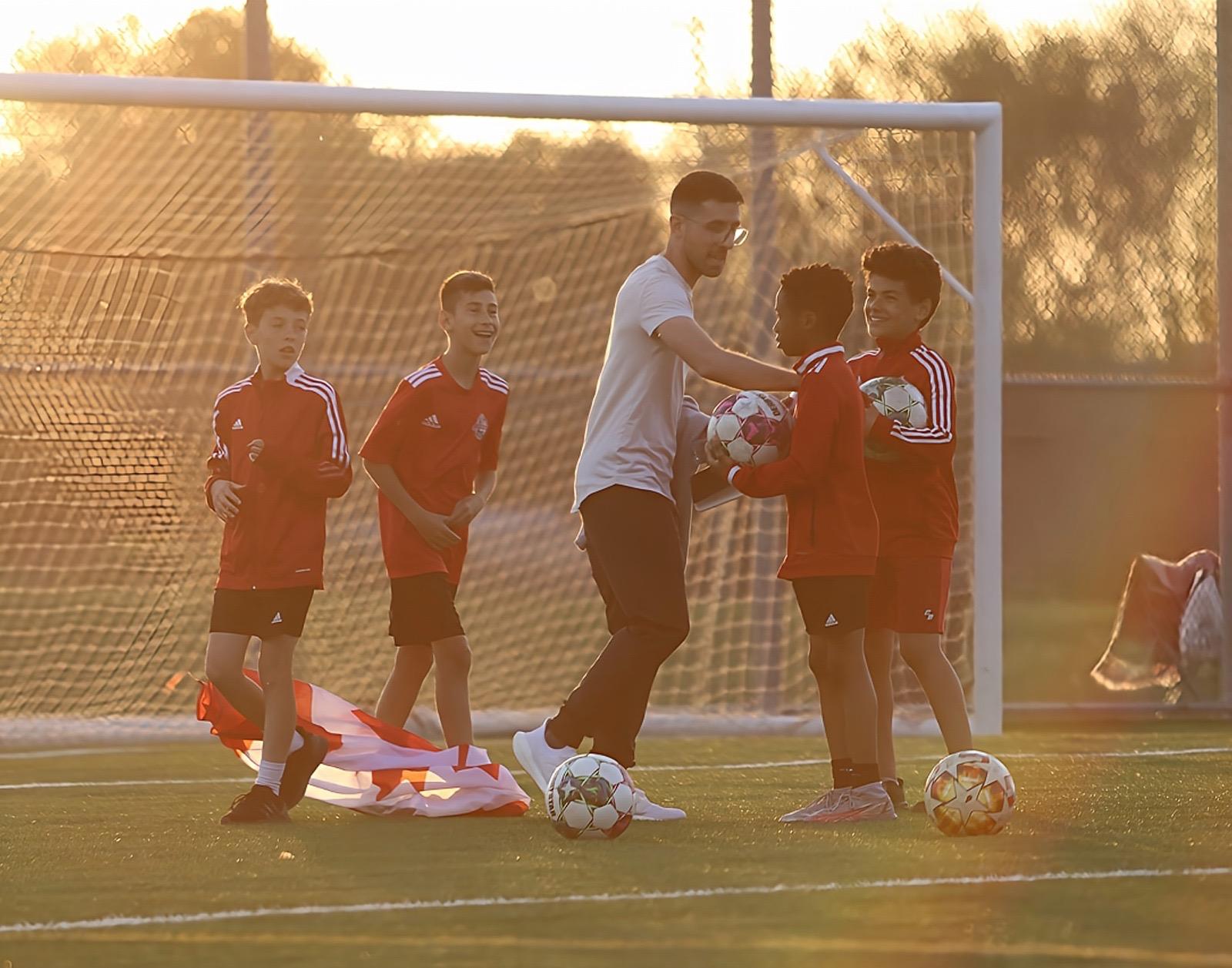
[ What are some of your future goals or exciting challenges you’re looking to tackle in the future? ]
To be in a project full of dreamers. I have a big passion for training methodology and sometimes this process of watching players strive is more enjoyable for me than the game itself. I also love individual game insight coaching as well as preparing youth players with big ambitions. These players need coaches with big ambitions as well or something will be lost in the process. Ambition is amplified when it’s around Ambition. The challenge is how to become the Canadian coach who breaks the biases for how we’re viewed and to join a purpose-driven football project and trailblaze a new path for other Canadians. I am also looking to take on another player in my game insight coaching, ideally a forward in the top 5 leagues who wants to increase their attacking output; xG, xA, xT.
I invite the curious to share and reach out.
